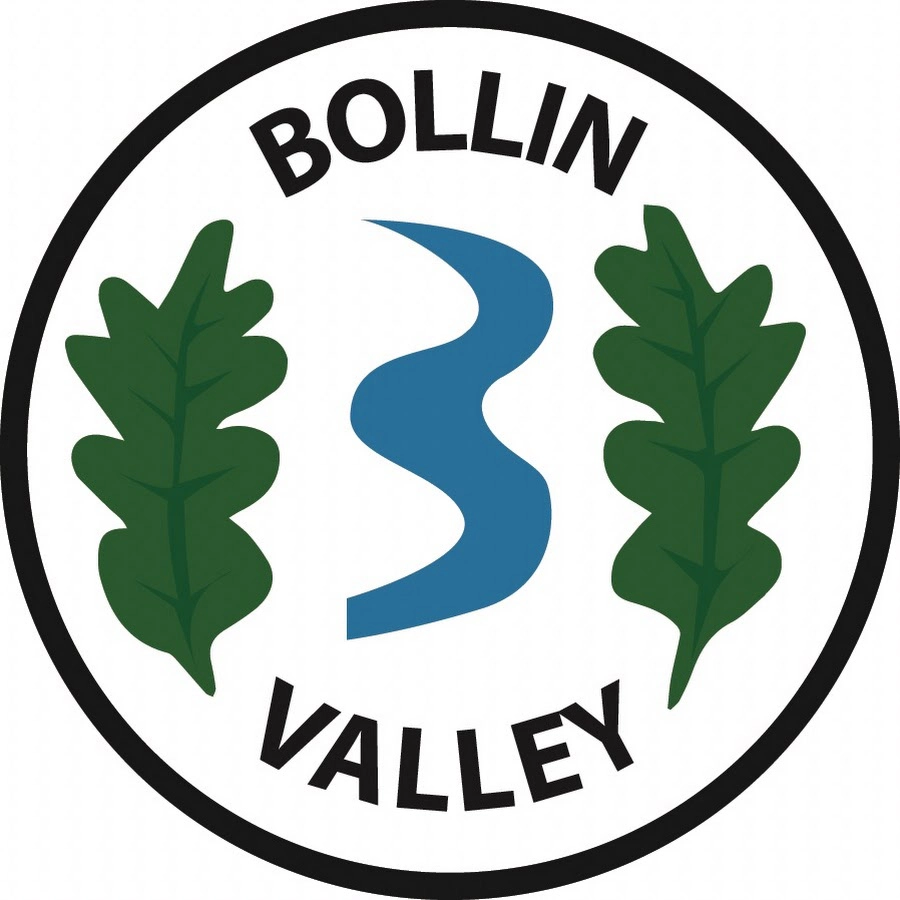
The Species Survival Fund will benefit twenty conservation projects across the country, including our 'Freshwater Renaissance' project on the River Bollin in Cheshire.
This is a 2-year collaborative project between the Mersey Rivers Trust and the National Trust. Together we will be creating and restoring habitats along the River Bollin at a number of National Trust sites and sites managed by the Bollin Valley Partnership.

Funding Details
The Species Survival Fund was developed by Defra and its Arm's-Length Bodies.
It is being delivered by The National Lottery Heritage Fund in partnership with Natural England and the Environment Agency.
Freshwater Renaissance is also supported by players of the People's Postcode Lottery.

Locations
Mersey Rivers Trust are working with the Bollin Valley Partnership and the National Trust to deliver habitat creation and restoration work at the sites below:
- Lindow Common SSSI, Wilmslow
- Riverside Park, Macclesfield
- The Carrs Park, Wilmslow
- Rossmill Woodland, Hale
- Quarry Bank Estate, Styal
Our partners the National Trust are also undertaking habitat creation and restoration work at their Dunham Massey, Lyme Park and Quarry Bank sites as part of this project.
Lindow Common
As part of this project, a series of wetland scrapes have been created along the edge of a wet heath compartment at Lindow Common SSSI.
A total of 1 hectares of wetland enhancement work has also taken place to manage colonisation by self seeding trees and to keep the wet parts of Lindow Common wet.
A scrape is a shallow depression in the ground with gentle sloping edges that is seasonally wet. Scrapes support a range of invertebrates, amphibians, mammals and aquatic plants. They also provide feeding areas for wading birds. The excess soil from these scrapes will be used to create bee banks.
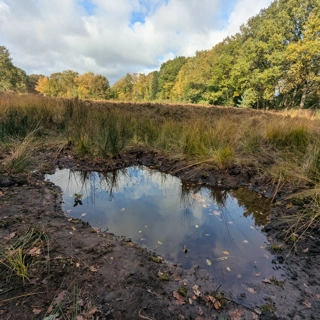
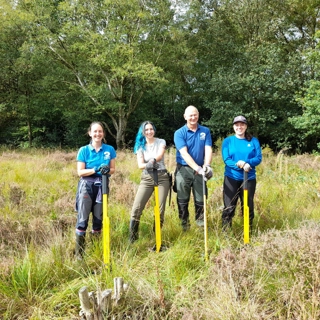
Riverside Park
This project has facilitated a range of conservation works at Riverside Park, on both sides of the railway line. These works include the creation of a series of ponds, restoration of existing ponds and riparian restoration.
Riparian restoration can include activities such as willow spiling, invasive species control and riparian planting which will help secure the river banks and prevent them from eroding.
Our volunteers have been invaluable in supporting the work at Riverside park, thank you volunteers!
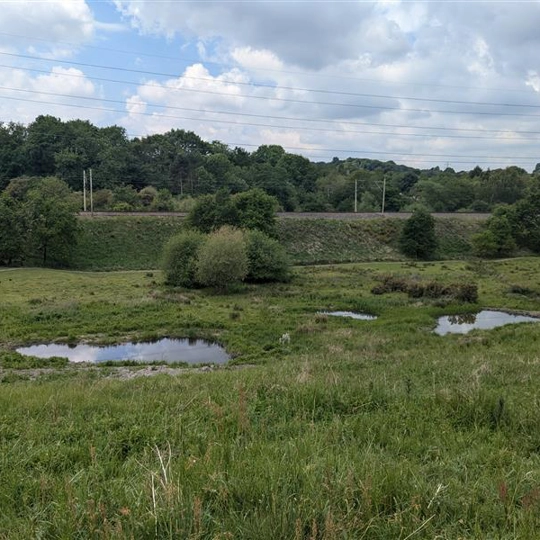
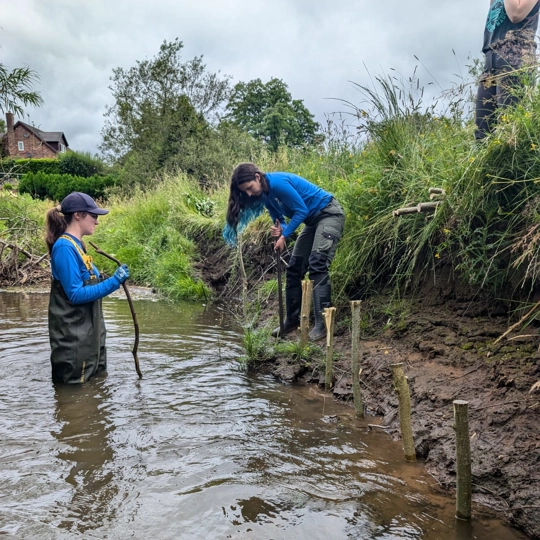
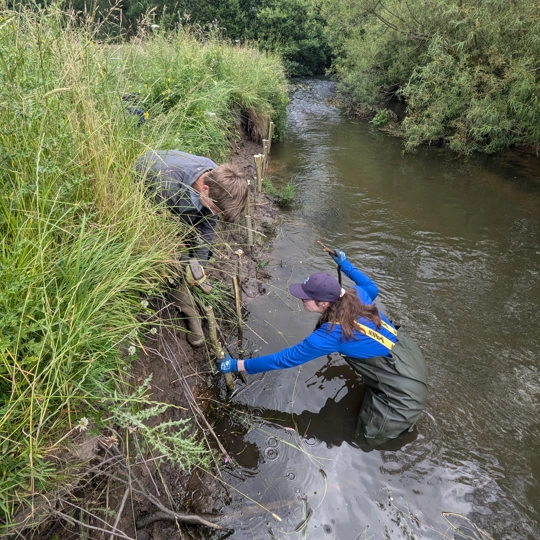
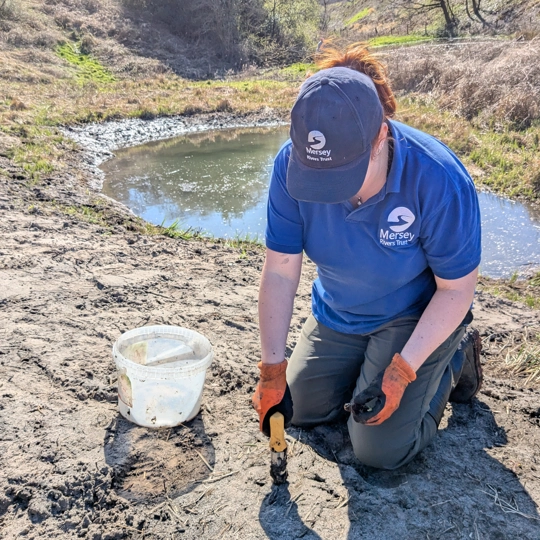
The Carrs
Work has been undertaken at The Carrs Park, in Wilmslow to restore and enhance wetland flush areas across the site.
Wetland habitats support and provide habitat for a wide variety of plants, invertebrates, amphibians, birds and mammals. They also store carbon and can reduce flood risk further downstream.
Big thanks go to our volunteers for supporting us with this work.
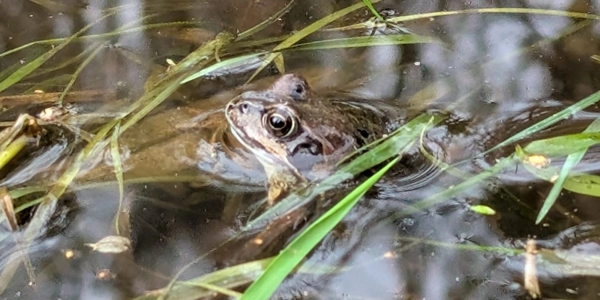
Rossmill
We will also be creating a two ponds on the edge of a meadow in Rossmill woodland. These ponds will be created where the land is already wet, enhancing the biodiversity in this area.
With 50% of UK ponds lost in the 20th century, it is important to help bring back pond habitat. Especially since ponds support 2/3 of our freshwater species.
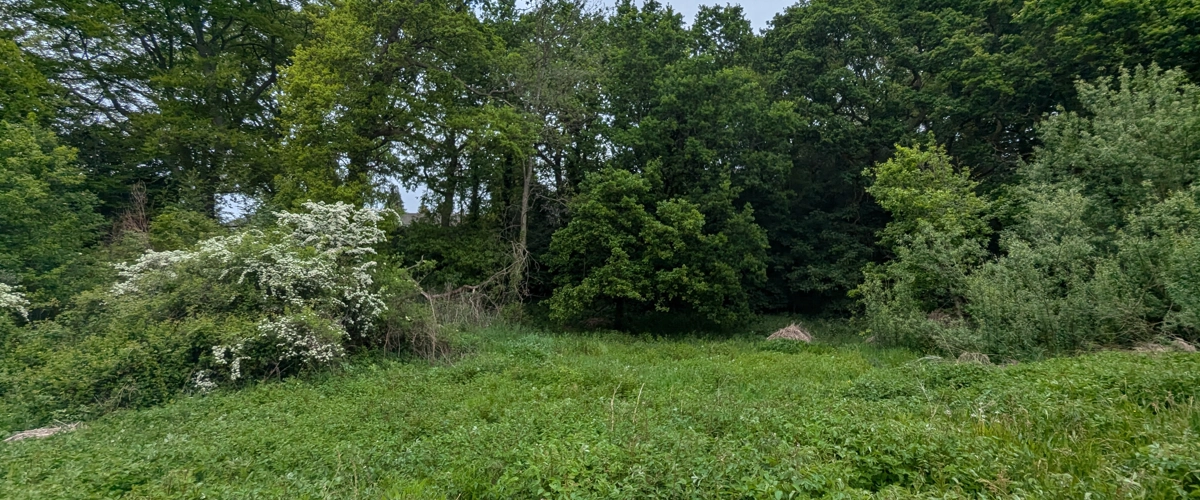
Quarry Bank
Riparian restoration work has also taken place on the River Bollin at the National Trust's Quarry Bank estate at Styal.
Approximately 1.8km of the river Bollin has been restored and enhanced through the installation of large woody debris (LWD).
Large Woody Debris (LWD) is an important component of a river’s anatomy, used to bolster habitat and moderate river flow in high energy channels.
LWD structures provide food and cover for a variety of aquatic organisms that, in turn, feed fish and other animals further up the food chain.
They also moderate stream flow, creating backwaters where sediment can settle out, and cutting deep pools that provide shelter for a variety of fish.
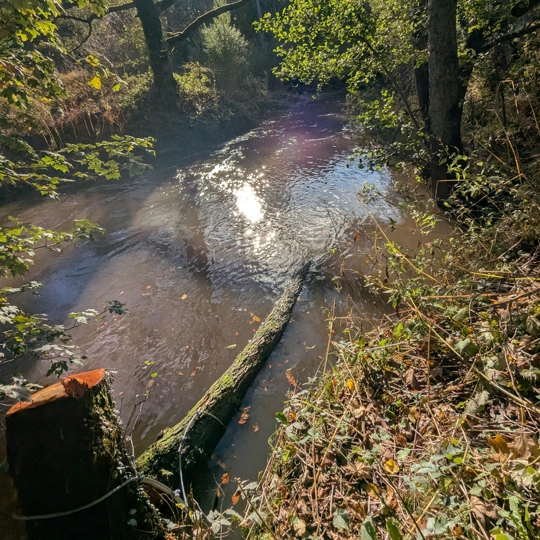
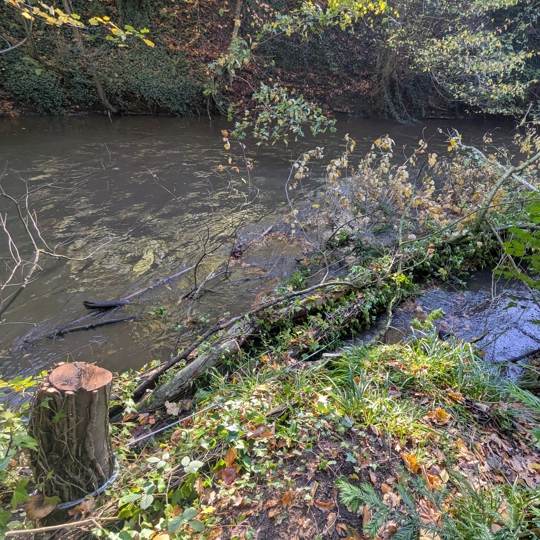
Engagement Events
Alongside the habitat creation and restoration works detailed above, we have also hosted community engagement events across the catchment. Both in collaboration with our partners at the National Trust on their sites, and at sites managed by the Bollin Valley Partnership. These events have included Bioblitz days, guided walks, children's educational activities, and volunteer working parties.
Events have taken place at:
- Riverside Park, Macclesfield
- The Carrs Park, Wilmslow
- Quarry Bank, Styal
- Lyme Park, Disley
- Dunham Massey, Altrincham
- Hare Hill and Alderley Edge
Make sure to keep an eye out on our socials and Eventbrite page for future events!

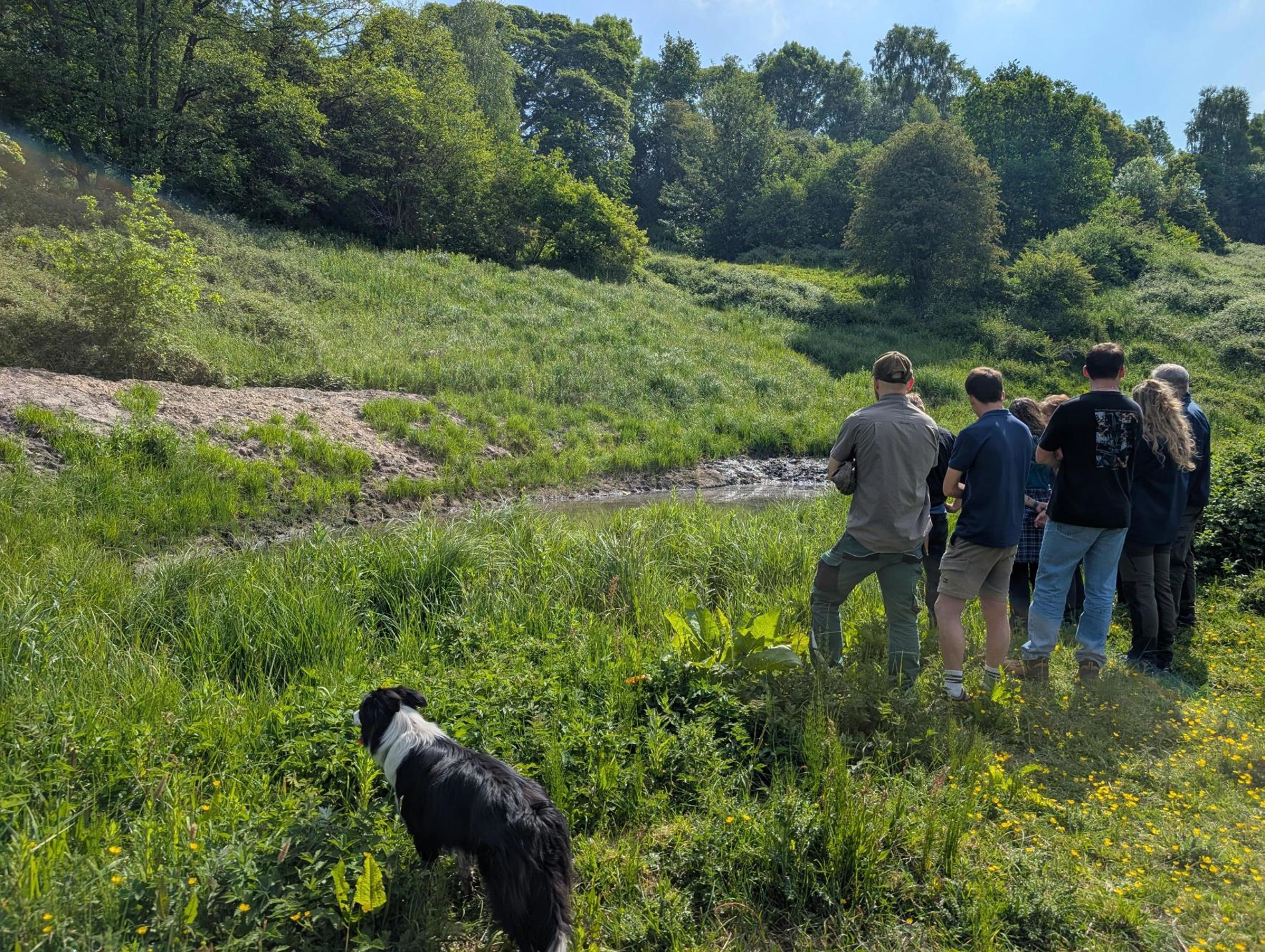
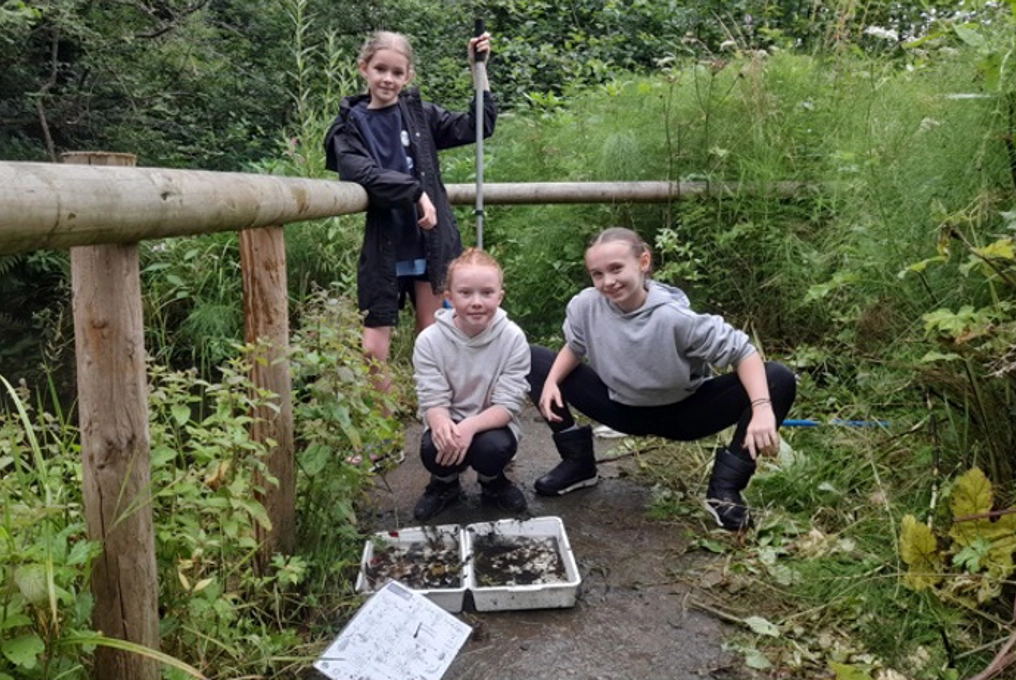
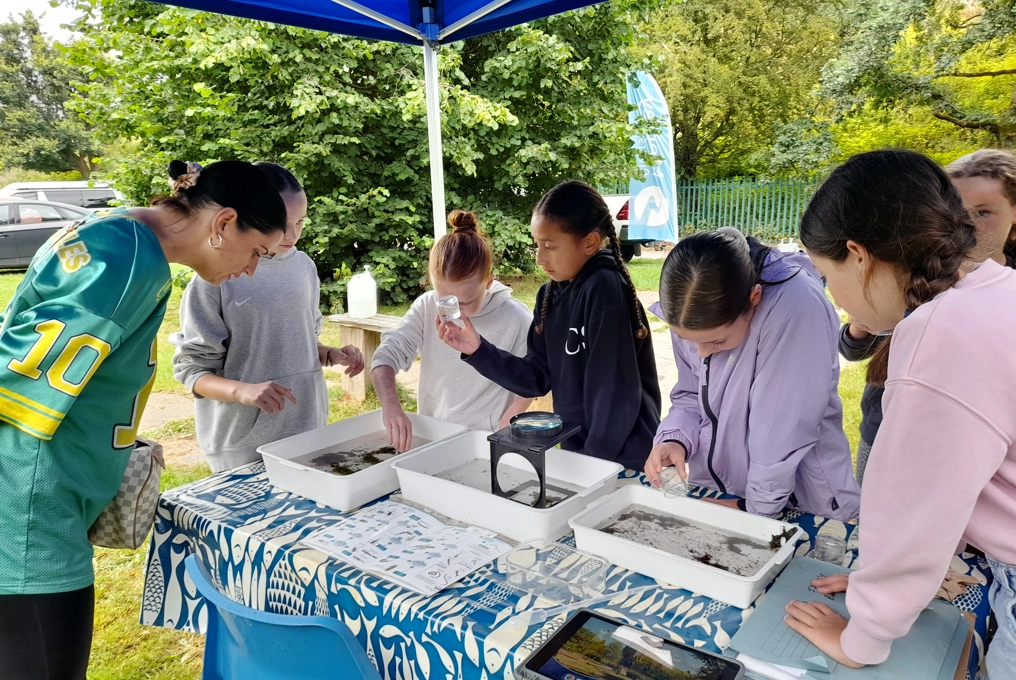
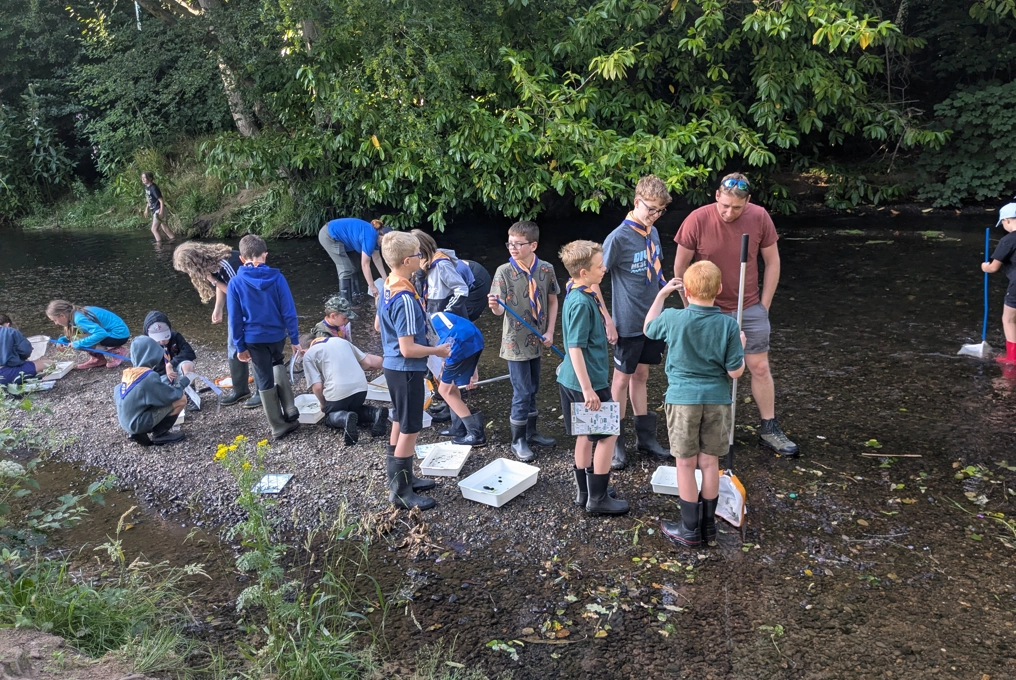
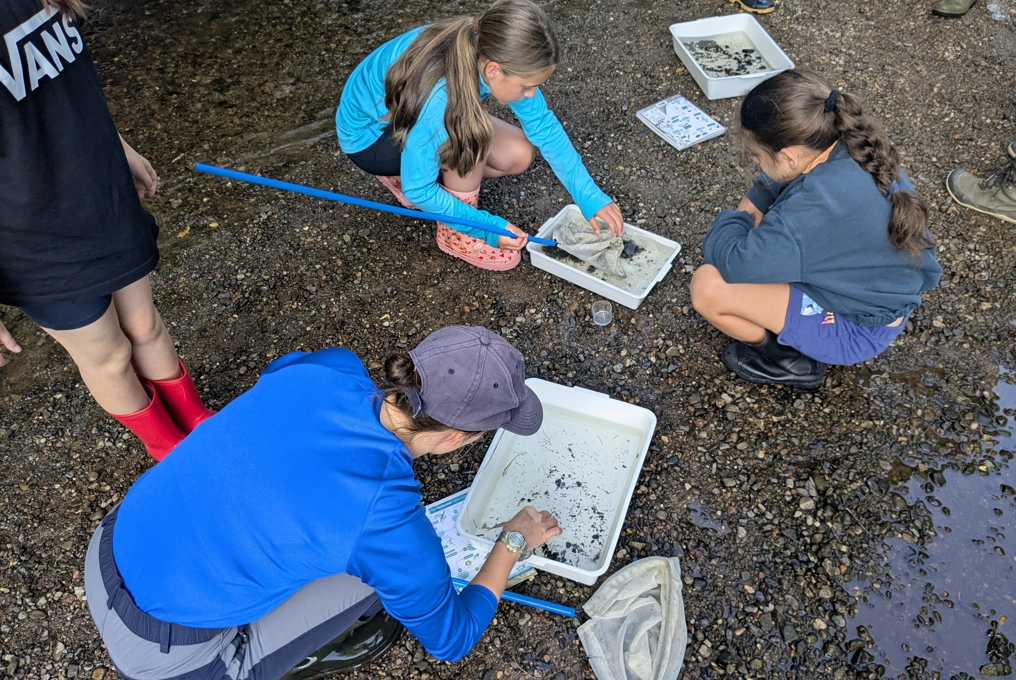
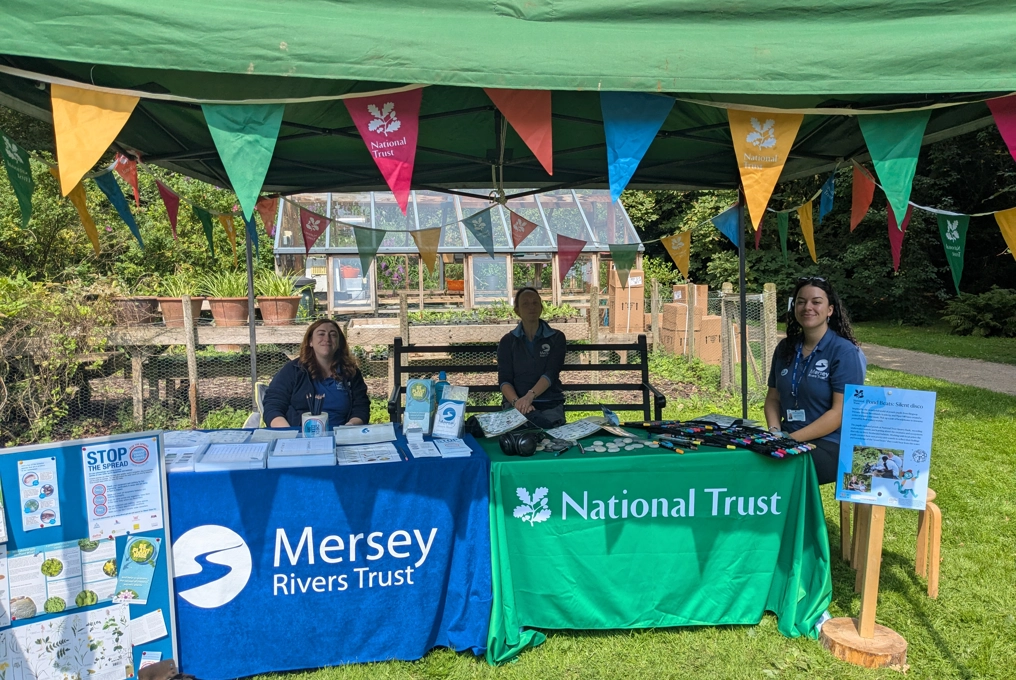
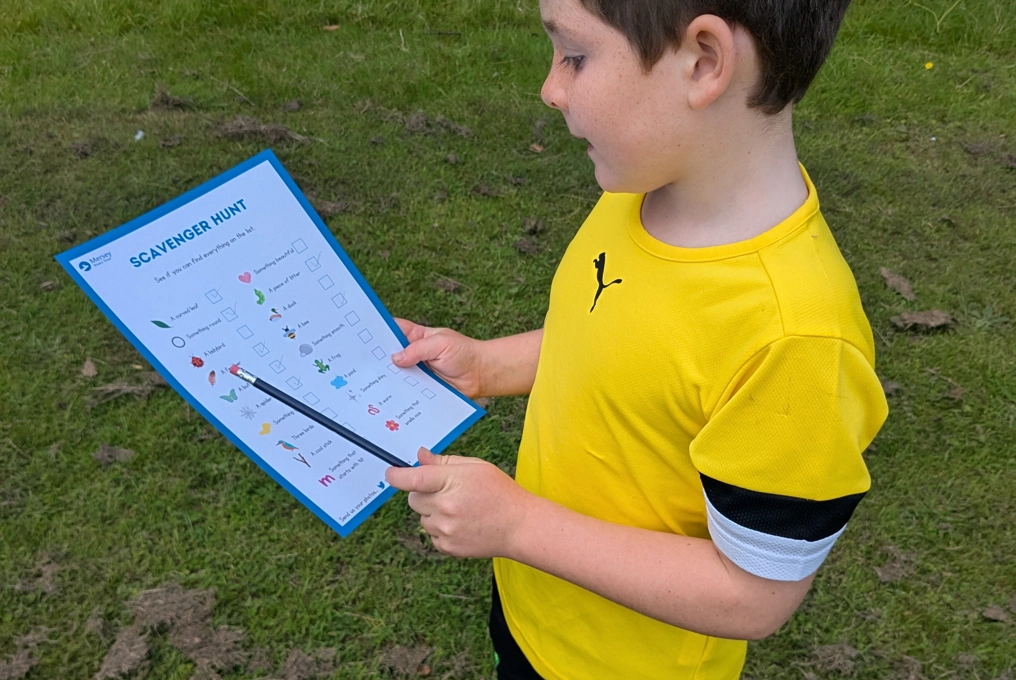
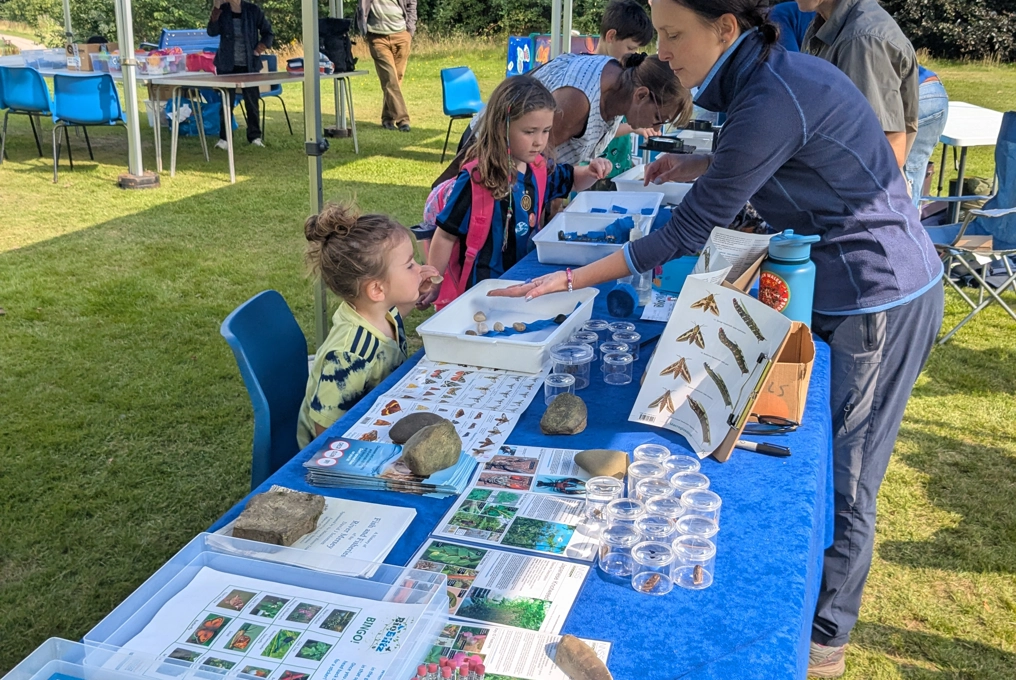
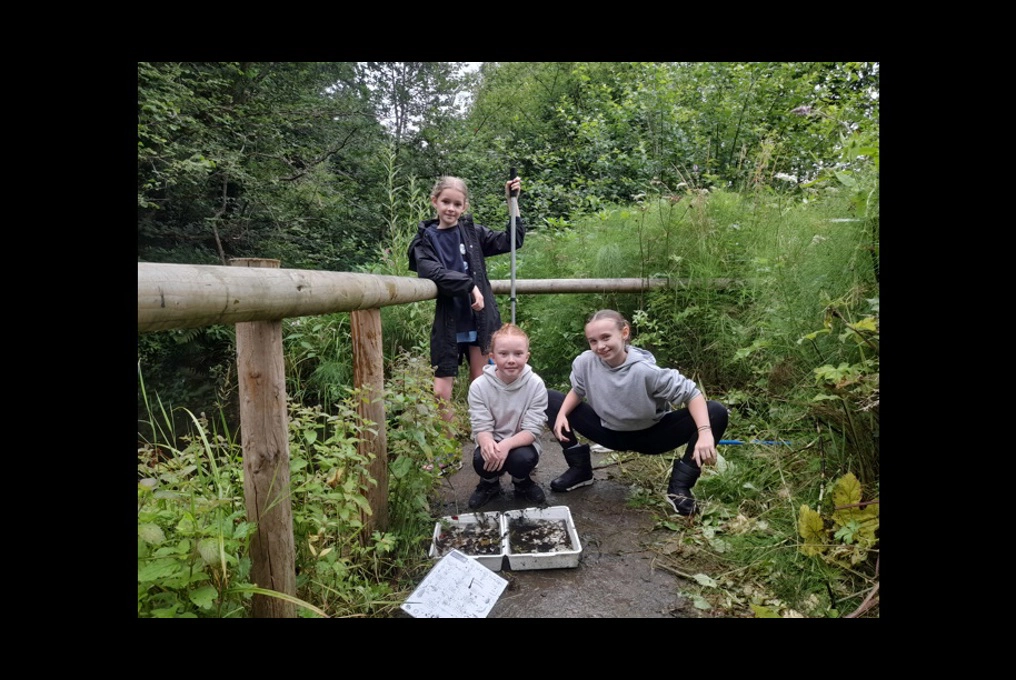
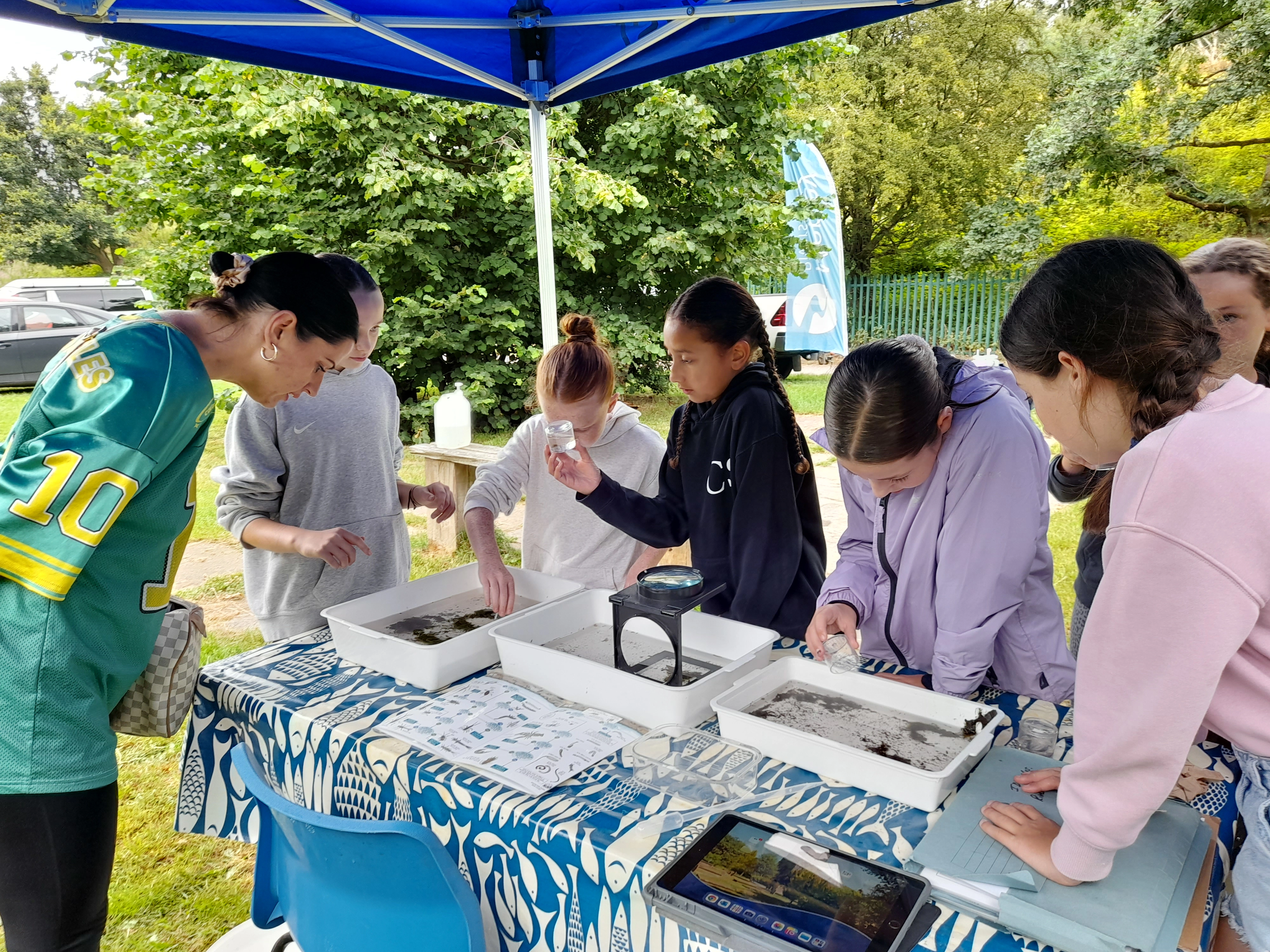
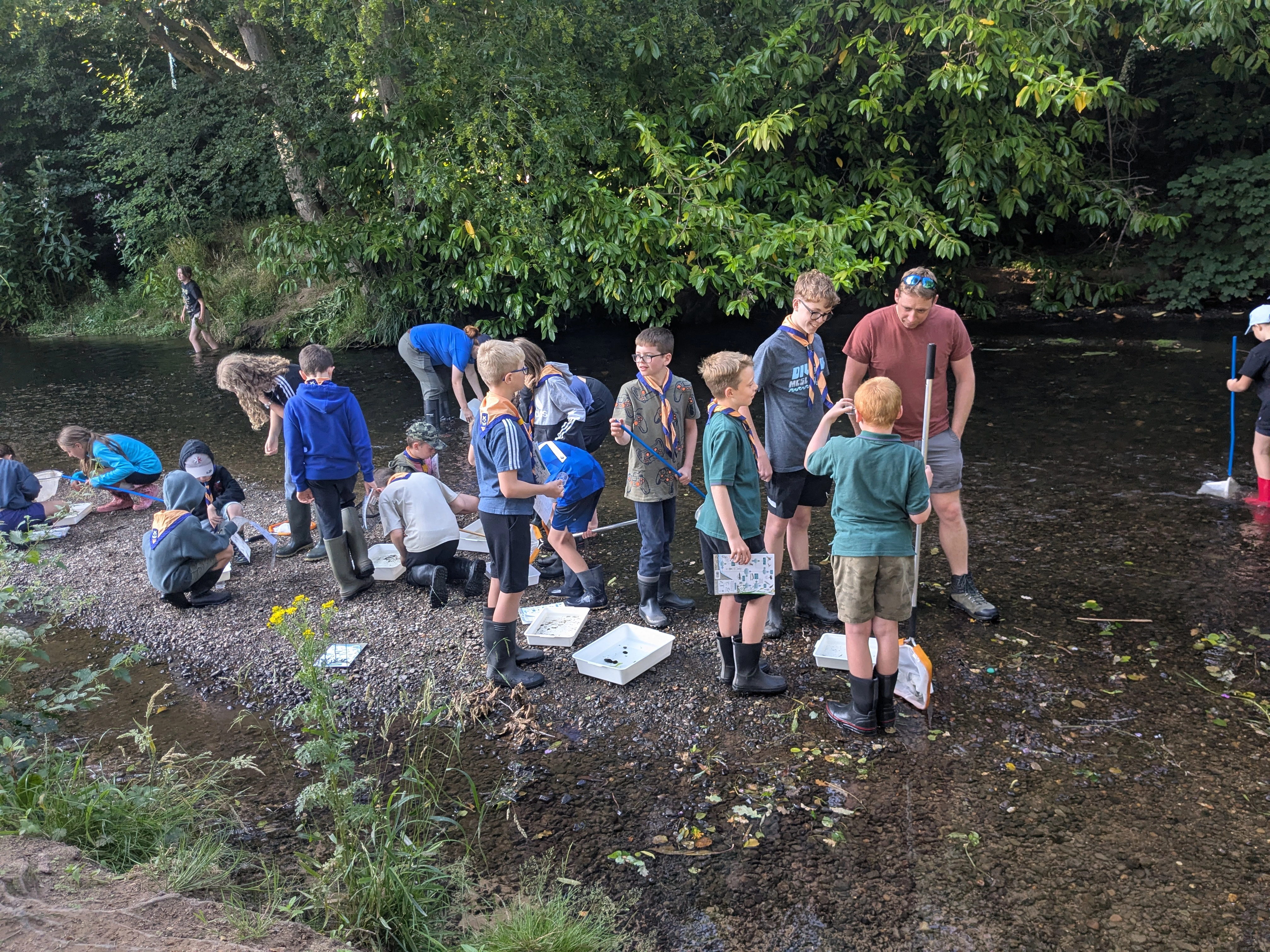
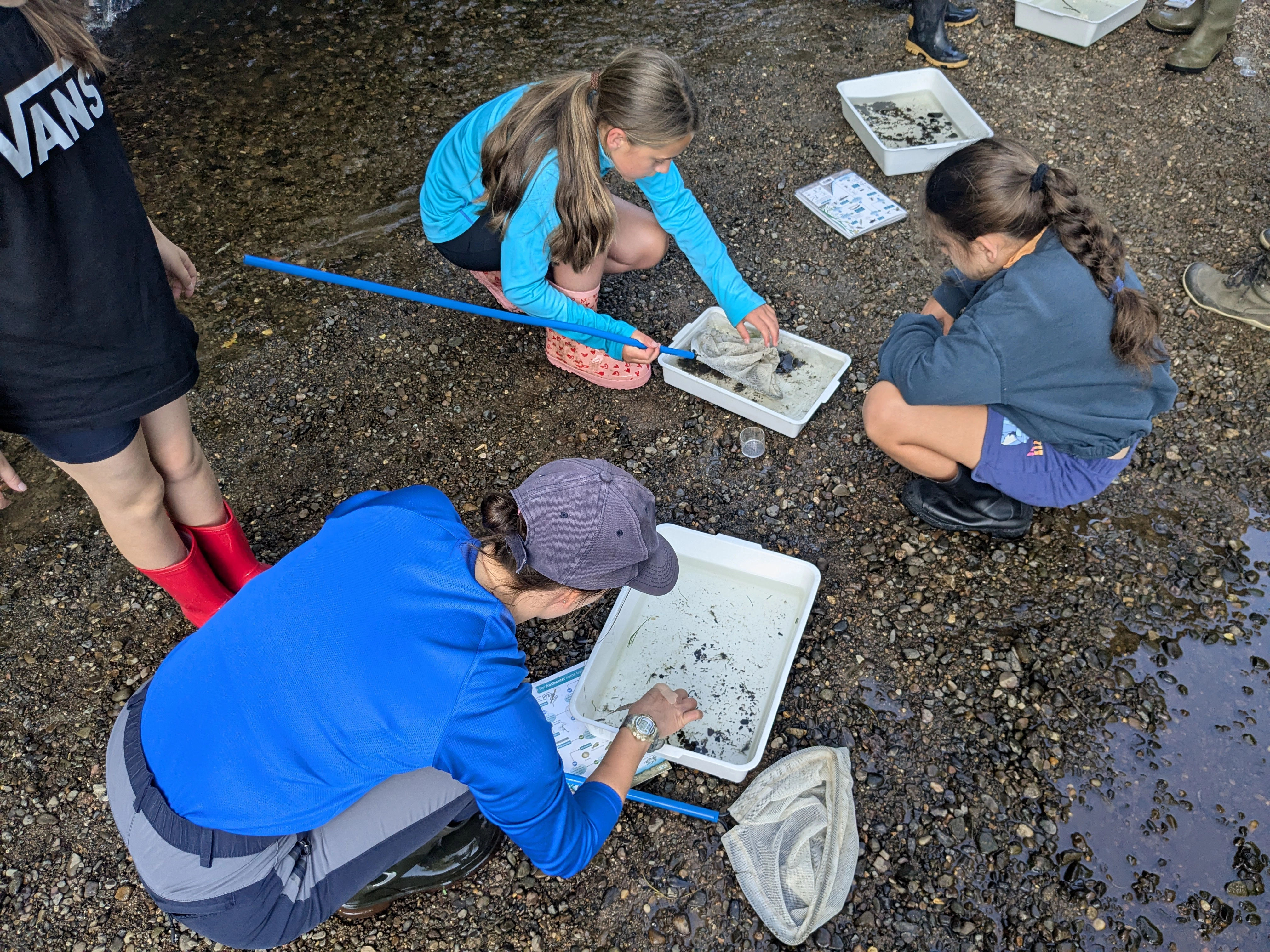
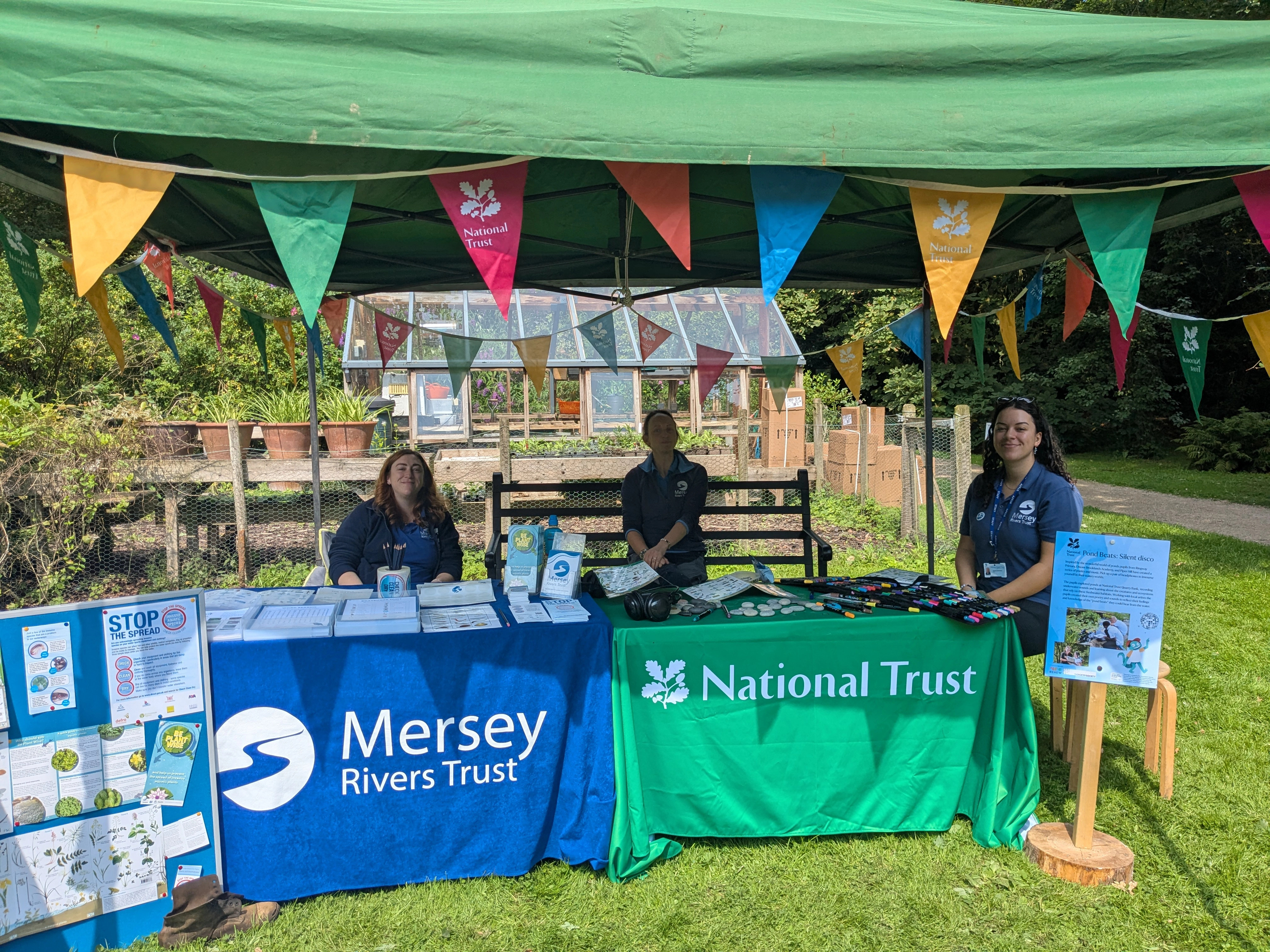
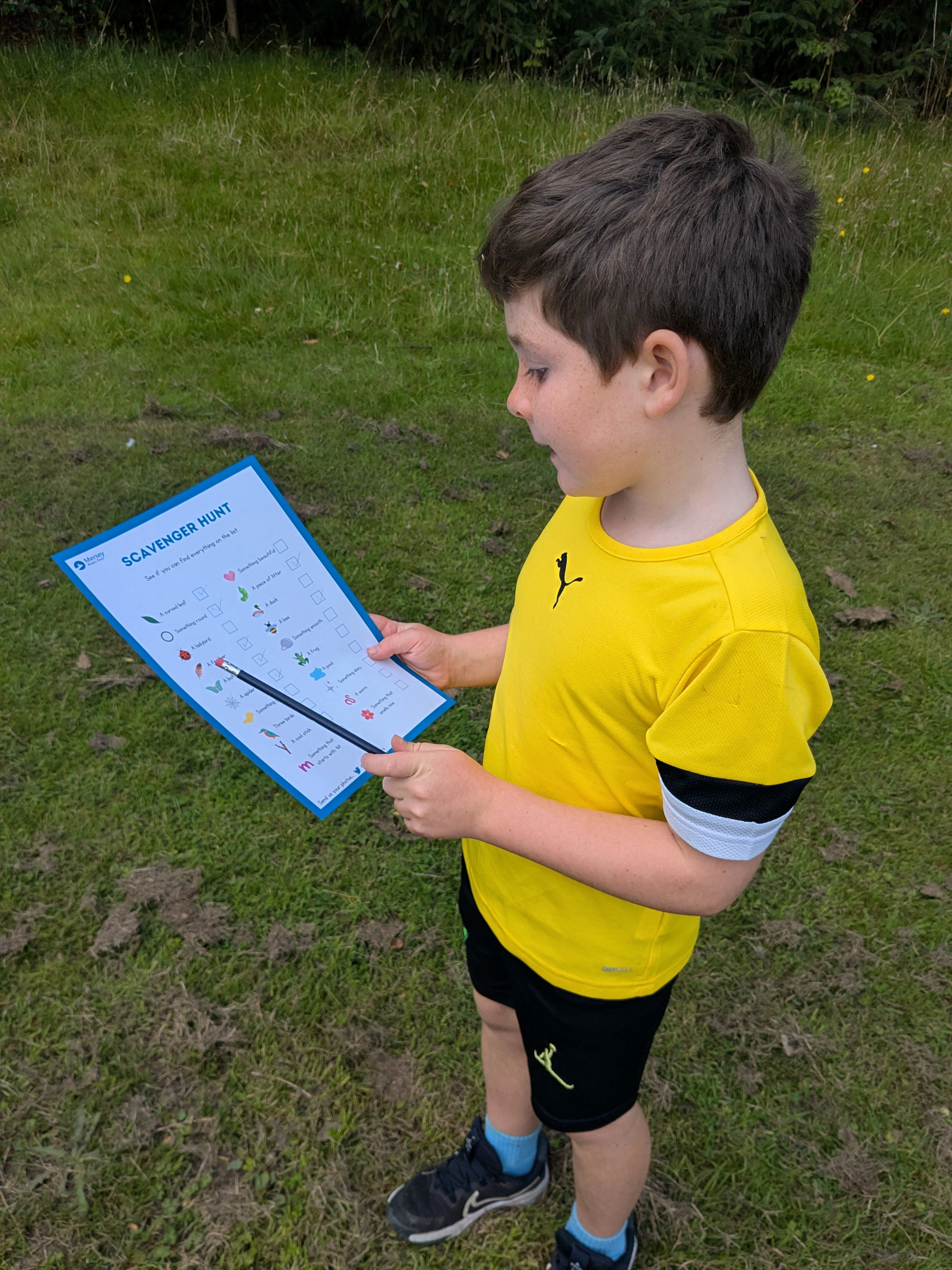
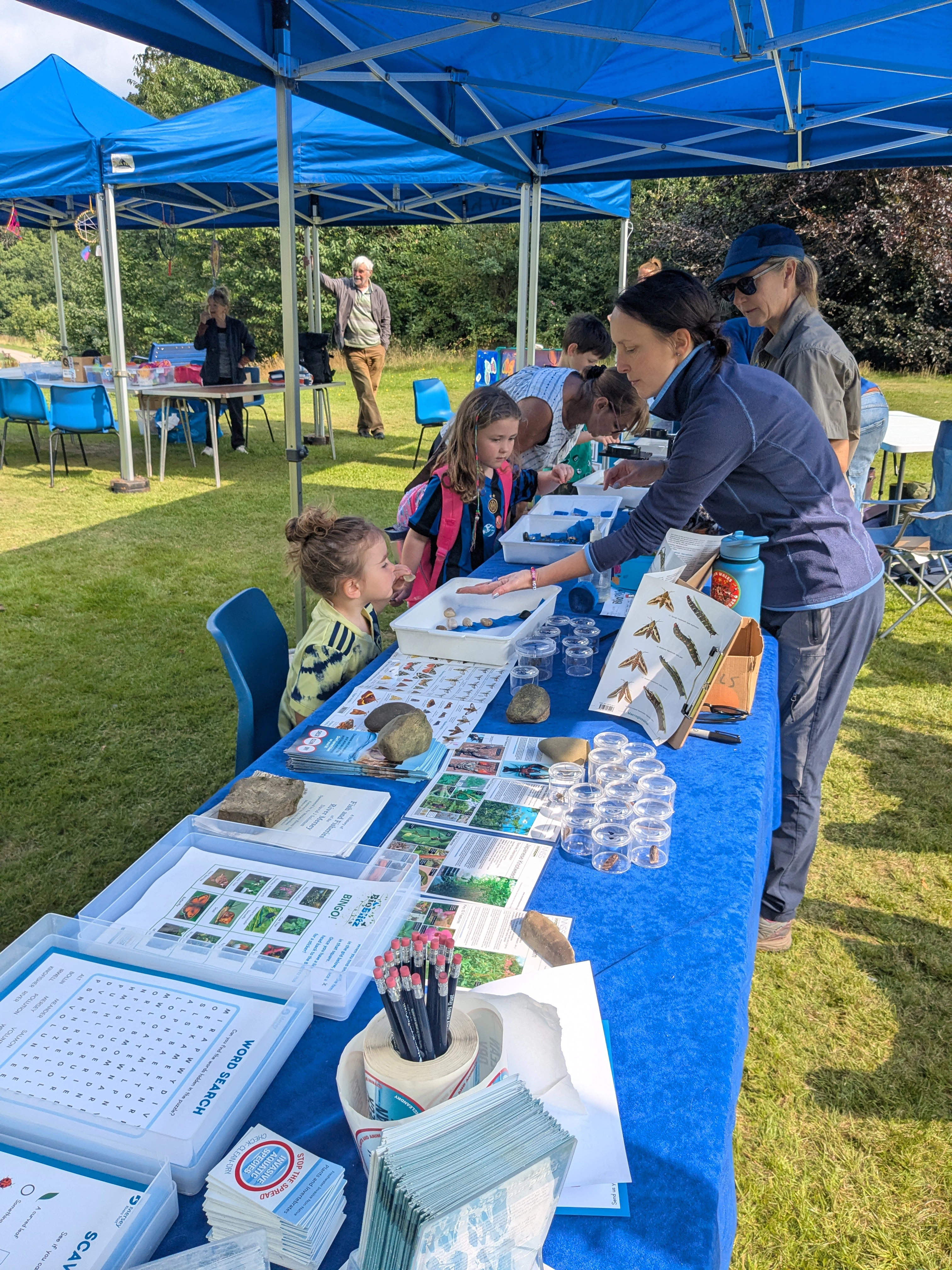
Share Article